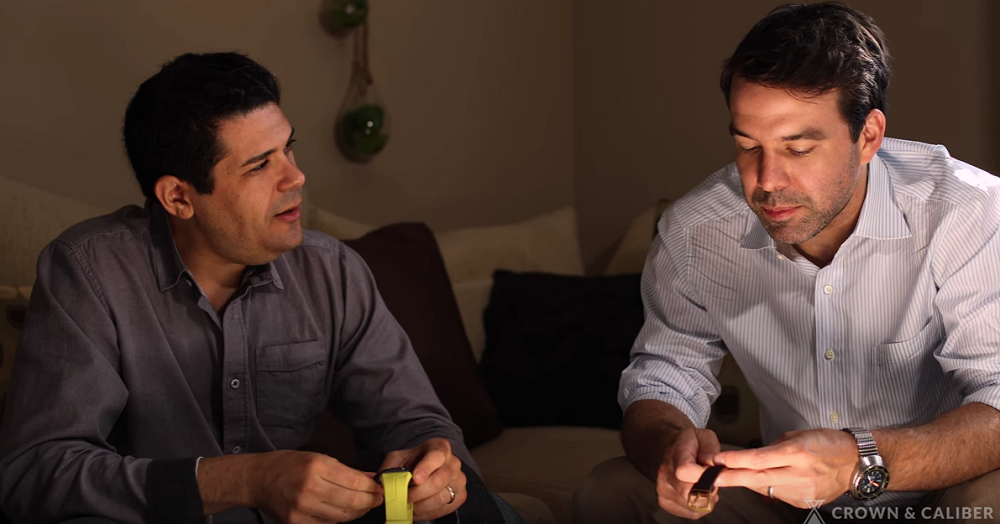
My close colleague Hamilton Powell, who started the pre-owned watch retailer Crown & Caliber convinced me to do something I would normally not – which is to participate in an interview talking about my own personal watch collection. While Crown & Caliber is based in Atlanta, Georgia, he visited me in Los Angeles and wanted me to share a “spread” of my watches including ones from my personal collection, as well as some that I was currently wearing for review.
One of the most ironic parts of my “job” is the conflict between wearing my own watches and those I am currently writing about or otherwise reviewing. I acquire watches that I like or that have meaning to me, but I rarely get to wear them given that much of the time I am wearing watches on loan from watchmakers as part of doing a review, and getting to know both that specific model and the brand overall better. Thus, it was an interesting exercise for me to focus on my personal collection and talk about my own subjective experiences and tastes. I’m typically shy about this because I never want anyone to feel as though they should like something just because I do. I attempt to explain the rationale behind liking or disliking any product, and then hoping that the person listening can make up their own opinion about the item that I am talking about.
Part of the context here is a larger study into the passion and sentiments we have which lead us to get excited about watches. This close examination of watch collecting behavior is salient given the clearly irrational motivation many of us have to spend good money on old technology. The reason we refer to most watches as “luxury items” is not really a function of their price (though it can clearly seem that way). What “luxury” means when I use the term much of the time is more related to “want” versus “need.” The availability or time-telling devices in our regular lives means that we do not need to rely on wrist watches in order to be aware of the time. Moreover, from a cost perspective, wristwatches are infrequently the most efficient way of knowing the time. Thus, our desire for watches is outside of pure need, and thus a “luxury” to varying degrees.
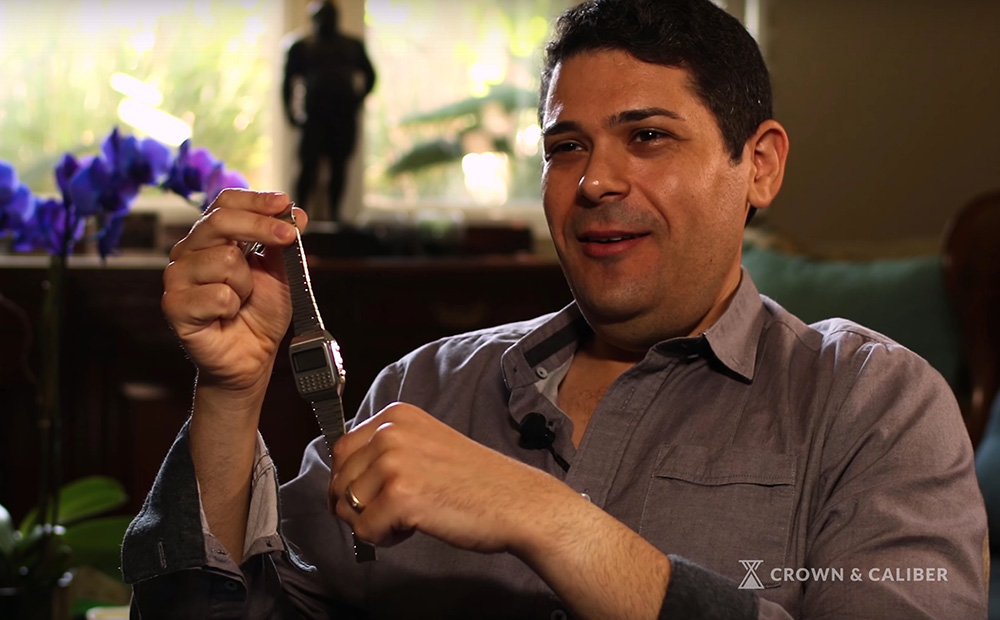
This ability for many of us who work hard in life to enjoy luxuries, or thus “some excess above what we strictly need to subsist” is part of what makes life worth living. Surrounding ourselves with “extras” allows us to feel content with the fruits of our labor, and the nature of those extras is directly related to the summation of our personal experiences and education. Luxuries like watches are a funnel for our interests, our tastes, our communication preferences, and our emotional sentiments – and for these reasons their collection, discussion, and enthusiasm continues to be so relevant today.
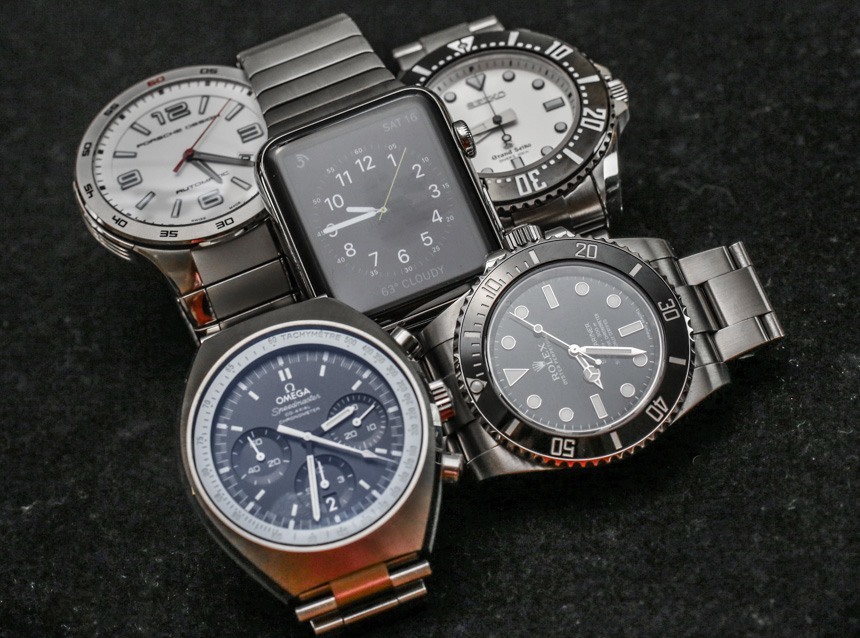
As I write these words, I recognize once again the “threat” of smartwatch technology as it represents the potential of a new rational reason to wear something on the wrist when until recently, and for a good two decades, we could occupy our wrist space with enjoyably irrational items (traditional watches). I, for one, will embrace future technology while at the same time doing everything possible to find as much emotional enjoyment as possible from my interest in mechanical timepieces. None of this is actually what I talk about in the interview video, but I wanted to supplement the healthy discussion in there with some thoughts about watching the video some time after I conducted the interview.
What makes a lot of the newer watch retailers out there that focus on internet-based sales different – no matter if they sell new or used watches – is their more scientific and data-focused take on the sale of timepieces. The challenge many of these retailers face is knowing what timepieces to put in front of the customer’s eyes. A traditional brick-and-mortar store doesn’t have this problem since they are bound by the physical space of their store. Digital retailers have almost limitless capacity to display products, and are bound by the limits of consumers’ attention while browsing. Thus, if you have 30 seconds of someone’s time on your digital storefront, the challenge is in presenting them with something that they personally like.
Given the vast availability of watch brands, models, prices, etc., this can be an incredible challenge. Such a challenge has relied on “artistic solution” in the past, where a skilled “curator” assembles a list of products they hope will appeal to as many people as possible. For the most part today, such techniques for ensuring that consumer attention in a storefront is maintained are difficult to scale. In other words, a store like Crown & Caliber wants to show me specific watches I might like, but ideally a totally different list of watches to their next visitor given their preferences.
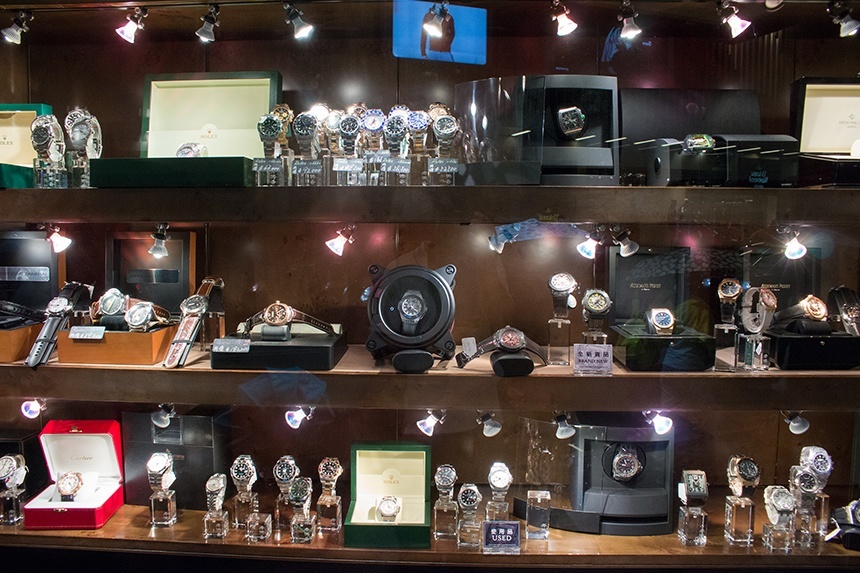
Granted, the emergent powers-that-be behind internet watch sales aren’t explicitly saying the above issues are those that they are most ardently working on. There are other more immediate challenges they are trying to solve. However, the issue of matching the right set of products with the right customers is a bigger-picture issue they are all pursuing solutions for, even if they aren’t outwardly aware of it.
How does that go back to this interview about my watch collection? When viewing my own collection, I am able to deconstruct my specific desire for each of the watches I own as well as their individual appeal to me. I can break them up into a series of categories and assign them to areas, like “interesting historical watches, interesting Ariel-history watch, original design, reminds me of something I grew up with, acquired at an important time in my life, etc.” Thus, my personal tastes and desire for watches is combined with purely subjective experiences that cannot be predicted or replicated, as well as more objective appreciation of design, construction quality, and mechanical utility. In other words, as long as watches remain items that we love for personal reasons as well as for practical reasons, no technology will likely come close to predicting what we might like to buy next.
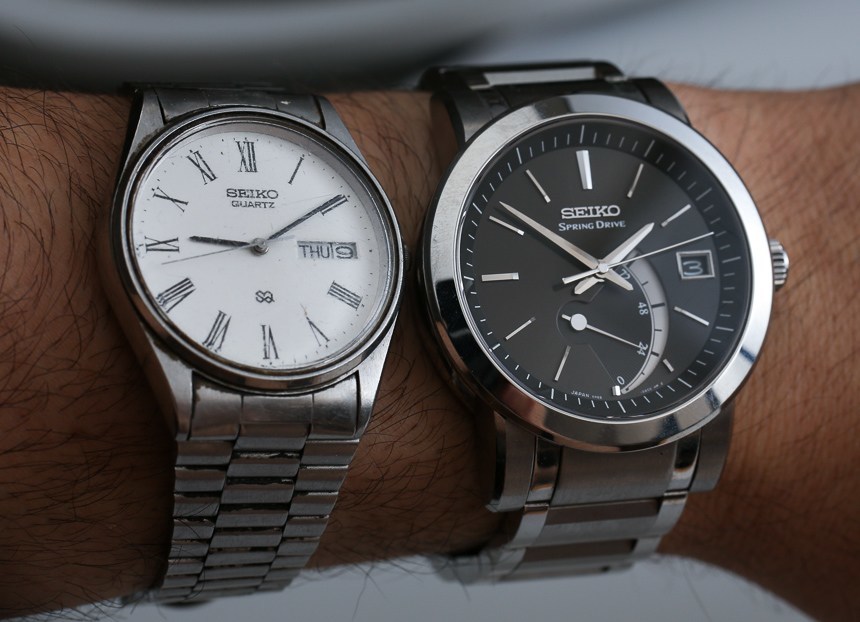
To me, this means that watch collecting and appreciation, like so many other hobbies of the mind, cannot be entered into or satisfied with any shortcuts. Assembling a collection of watches will always be a very personal endeavor. It will require time in order to educate one’s self about watches while also continuing to have life experiences that allow you to actually acquire them and form emotional bonds with new watches that you get. In my view, that leads me to believe that the Crown & Calibers of the world will need to be as interested in watches as the people they hope to attract as customers. Hamilton Powell is increasingly understanding this, and it is a good sign for any company clearly interested in being useful to people like me who love watches and want the help of good businesses to bring more of them into my life.
This interview is a small snapshot into my personal passion for watches up to this point in my life, and I hope you find things to relate to. So go out there and keep adding to your own watch collection and stories of watch appreciation.
